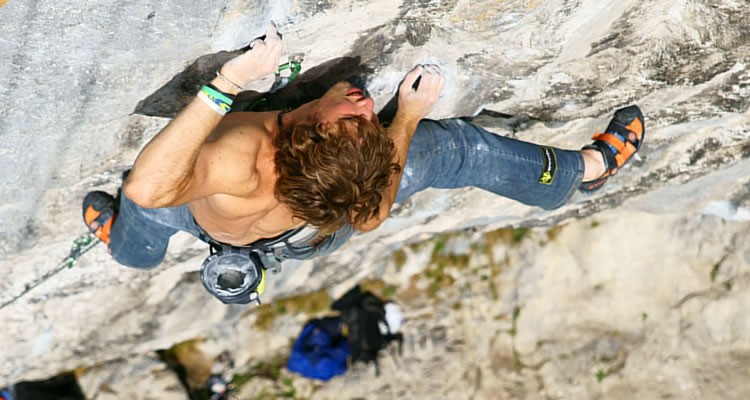Born to Succeed
- Font size: Larger Smaller
- Hits: 5669
- 1 Comment
- Subscribe to this entry
Opportunity for Success
"Be not afraid of greatness: some are born great, some achieve greatness and some have greatness thrust upon them"
William Shakespeare - Twelfth Night (Quote Act III, Scene 1)
Are some of us born to be successful? Is it a natural element to the human type that some of us have greatness embedded within our DNA and others do not? I do not to believe this is the case, we are all individuals that live our own unique lives, each different from another and I won't succumb to the thought that success in life is pre-determined by genetic factors untouchable and unchangeable by us.
My ambition to be the best climber I can be is a path that I chose, that was not pre-determined by anyone else, however, the opportunities to which lead me there where. To get an idea of why great athletes, academics, artists and in general human beings achieve greatness in whatever form, we must first look at how their paths in life began.
"No one saves us but ourselves. No one can and no one may. We ourselves must walk the path."
Buddha
Paths in life always start of with opportunities. Matthew Syed, ex-world champion table tennis player and Olympiad describes in his book "Bounce" the real reasons for his rise to fame in the world of competitive table tennis:
"I was in effect, the best of a very small bunch. Or, to put it another way, I was the best of a very big bunch, only a fraction of whom had my opportunities"
"Practically every man or woman who triumphs against the odds, is on closer inspection, a beneficiary of unusual circumstances."
A meritocracy is the idea that achievement is based solely on hard work and determination, but that is only the starting point. Adam Ondra is the worlds greatest climber, but had it not been for him being born into a family of climbers it is strongly argued that he would not have achieved nearly as much in climbing as if he was born into a family of chess players. This is one opportunity he had in his career that led him to success, but no doubt this is not the only one.
Although opportunities in life are needed to create the perfect scenario for which a person can become great, there needs to be the will and drive to give everything they have in order to then achieve greatness. Although Adam Ondra has had some amazing opportunities that have pushed him in the right direction, it still comes back to his attitude towards climbing that has made him what he is today.
Talented?
Is Adam Ondra a product of a talented genetic structure born into opportunity, or is there more to it? For years scientists have been asking the question is talent something we are born with or can it be acquired by anyone?
Anders Ericcson, a scientist researching this very subject discovered that the outcome of performance was directly identifiable with the number of hours dedicated to "serious" practice. No duh, right? If you practice at something you will get better, and I bet there are hundreds of examples you could think of where someone has outdone you when you think they didn't practice as much as you. But note what I said in quotes,
"Dedicated to serious practice"
The "serious" part is the difference. When I was younger I hated math, I studied at it to try and get better but nothing I did worked. What I didn't "try" was exactly that! When I was studying I would do countless equations on my own, but there was no passion or want to better myself, I simply saw it as a means to an end. Interestingly, the best I ever got out of my maths studying was when working on it with my grandfather. I enjoyed this time with him, we had fun in those countless hours and it became a part of the day I looked forward to rather than dreading. I worked hard at maths back then because I enjoyed it more, and there seemed to be a thrill in accomplishing a hard sum as opposed to my latter attitude to math which was, to quote my last blog,
"Ticking the box"
For those that read my last blog, I talked about the attitude towards a session that makes the difference between the good, the great and the best! Its all about the mental attitude towards your training that gives the greatest outcome. If you only give the very minimum to anything, you will in turn receive the very minimum. You must whole heartedly give your soul to those activities you wish to excel in for the time you work on them.
So can people be talented at something without putting the man hours in? This a definite no. Nobody can improve at anything without putting some amount of effort in. You might see people who are amazing climbers who appear not to have done much training/climbing previously, but you may not know the history of their climbing. I have met many strong climbers who appear not to have put much work in, but on closer inspection, it turns out that they actually have been climbing for a long time, but go through stints of not training or perhaps don't train anymore (i.e. they used to).
What makes the expert?
There has been much research gone into the area of how much dedicated practice is required to make someone an expert. Without going into too much detail, approximately 1000 hours a year for 10 years (or 10,000 hours = 2.7hours a day). This is whats required to make an expert at anything. When looking at Adam Ondra's 8a.nu scorecard, we see very clearly a distinctive upwards progression in his total number of points from year to year. I know this isn't exactly that scientific a measure, but its interesting to see as it clearly identifies a direct correlation to years of focussed practice and his progression in climbing. In 2010 he climbed his first 9b, 10 years after he made the scorecard (though probably not after he started climbing), this is probably todays world class level (Top 5) which therefore identifies him as an expert.
One up to the theory of "focussed" practice makes perfect!
The next logical step is to question what talent consists of? What really makes those with apparently super-human powers that enable them to be the best? This will also answer the question, why is it that those that have put in hours of dedicated training and effort years previously still maintain their ability to some extent? Many of the older generation who can't train as rigorously as they once did due to injury, time constraints, still seem to crank out hard, sometimes as hard as they did when they were younger without putting any extra effort in! Its the same when we see people who have climbed when they were kids and return to it in their adult years. Usually within a few months of climbing, they have returned to their previous best, often overcoming it considerably!
Next week I'll be following "Born to Succeed" with the next part, looking at what talent consists of and how knowledge equals power!
ROBZ OUT









Nice post man, looking forward to the series!